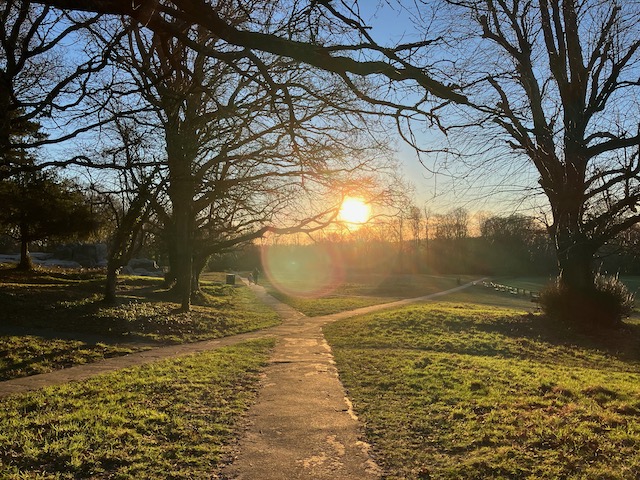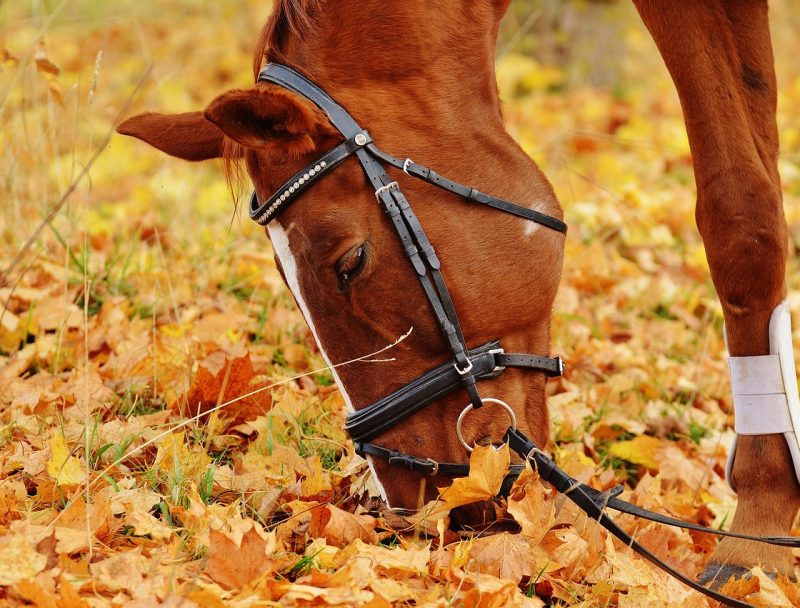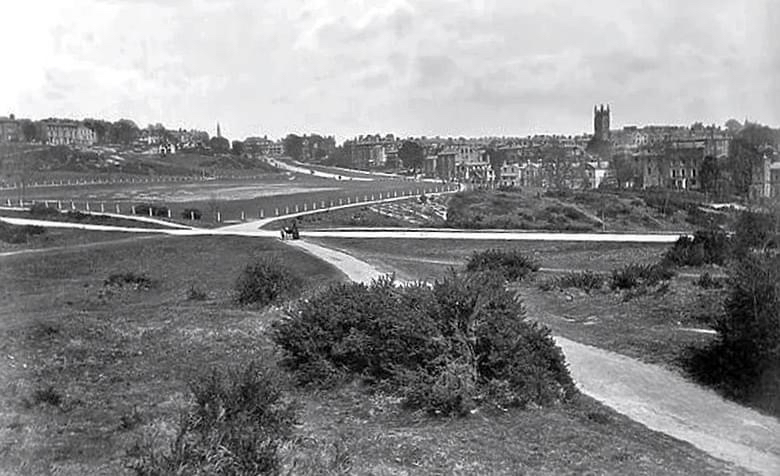
Update from Ranger Dan
18th September 2023
Summer has been such a delight for the chap with the best job in the world (that’s me by the way!). Ok, I confess that every season and every month is a delight in one way or another on the Commons.
It’s such a privilege to have been learning more about the Commons and its social, ecological and historical context. For example, just recently someone told me that England played Australia on the Commons in 1882 – captained by W.G. Grace, one of the sport’s greatest players! 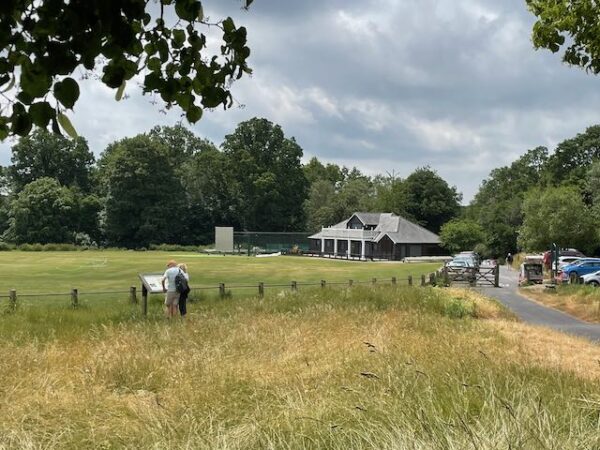 I have also being having more fascinating conversations with some of Rusthall’s older residents about the WW2 anti-aircraft gun positions and where all the bombs landed. We really do need to catch audio recordings of the knowledge and memories that the older members of our community have. It has been an absolute privilege and I have so much more to learn!
I have also being having more fascinating conversations with some of Rusthall’s older residents about the WW2 anti-aircraft gun positions and where all the bombs landed. We really do need to catch audio recordings of the knowledge and memories that the older members of our community have. It has been an absolute privilege and I have so much more to learn!
Readers may recall that this year we are producing a new 5 year Ecological Management Plan for each Common. And that as part of this critically important work we have allowed many areas to grow longer this year. This was to enable any wildflowers to grow and set seed where possible and also to provide as much benefit as we could to our wildlife populations who are dependent on the opportunities presented by longer foliage. We have been busy surveying the results and I am delighted to say that this has proven to be incredibly successful so far. We have seen all sorts of wildflowers appear and in August we were very fortunate indeed to have had a brief visit from the Kent Botanical Group and Sussex Botanical Recording Society.
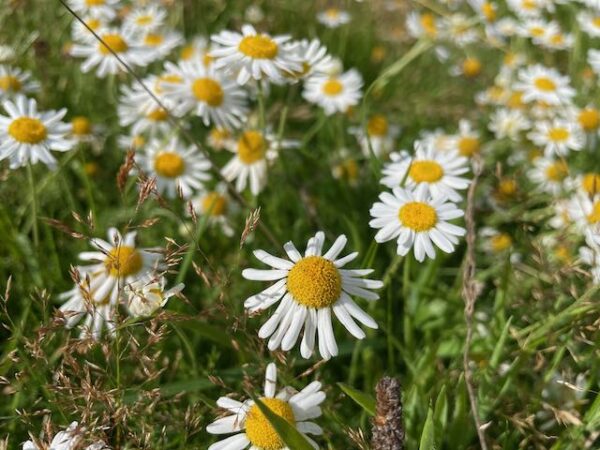
Chamomile on the Lower Cricket Pitch.
I have started what I know will be a very special relationship with the group and have met with the lead (Geoffrey Kitchener) since, to walk and discuss some exciting plans for a full survey on one of the Commons (most likely Rusthall) next year. I was thrilled to learn from Geoffrey that we now have one of the finest crops of nationally scarce Chamomile in Kent! It has grown in abundance on the Lower Cricket Ground because we left the area a bit longer.
We are now going into Autumn and September will see us commencing our ‘flail mow collecting’ of meadows and long grass areas. It is important that we collect the grass where we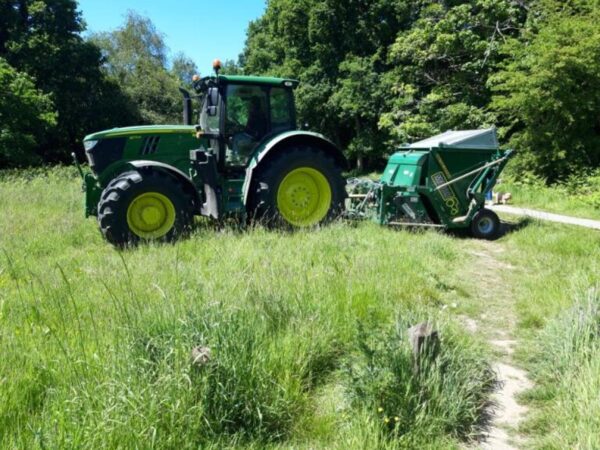 can as most wildflowers only thrive in nutrient poor soils. We have to get the cutting balance right as many butterfly and moth species lay their eggs and/or hide in longer grass. The newly hatched caterpillars will then hatch in time for the next spring and crawl up the long grasses. So if we mow everywhere short, then put simply; we will have less new butterflies each year. So less longer grass = less insects = less pollinators, and so less birds and bats etc. Perhaps we need to learn to love what might appear ‘untidy’ to some eyes. Our wildlife thrives in and on the ‘untidy’.
can as most wildflowers only thrive in nutrient poor soils. We have to get the cutting balance right as many butterfly and moth species lay their eggs and/or hide in longer grass. The newly hatched caterpillars will then hatch in time for the next spring and crawl up the long grasses. So if we mow everywhere short, then put simply; we will have less new butterflies each year. So less longer grass = less insects = less pollinators, and so less birds and bats etc. Perhaps we need to learn to love what might appear ‘untidy’ to some eyes. Our wildlife thrives in and on the ‘untidy’.
On a sad note, we do have more ash trees to remove this year. The terrible disease, ash dieback continues to attack our beautiful trees and for safety reasons we have to remove trees with advanced disease where they are over roads and popular paths. As you will have seen though, we are managing the work in such a way that we can actually improve the biodiversity and wildlife value of the areas affected. We are planting some replacement trees and also creating some amazing new glades. Our surveys have shown that bats and butterflies are really benefiting from what would otherwise be terribly tragic work.
Finally, we have some new signage going up around the Commons. We are simply replacing the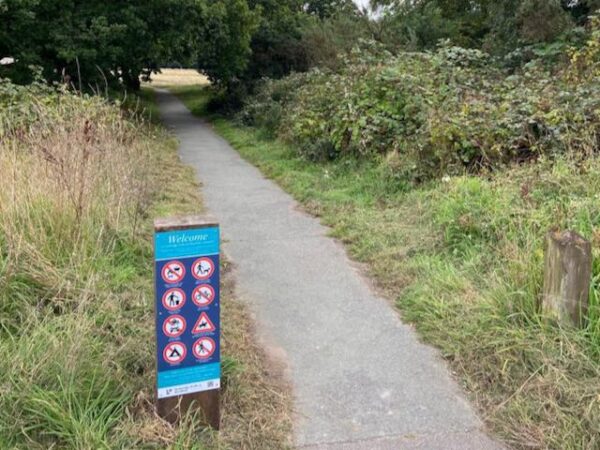 old bylaws signs with something which is hopefully more succinct and clear for all visitors. Especially the bits about ‘no fires or bbq’s’. We also have a brand new ‘Welcome’ sign down at our only car park. We love the diversity of our visitors whether they be dogs, horses or even humans…
old bylaws signs with something which is hopefully more succinct and clear for all visitors. Especially the bits about ‘no fires or bbq’s’. We also have a brand new ‘Welcome’ sign down at our only car park. We love the diversity of our visitors whether they be dogs, horses or even humans…
